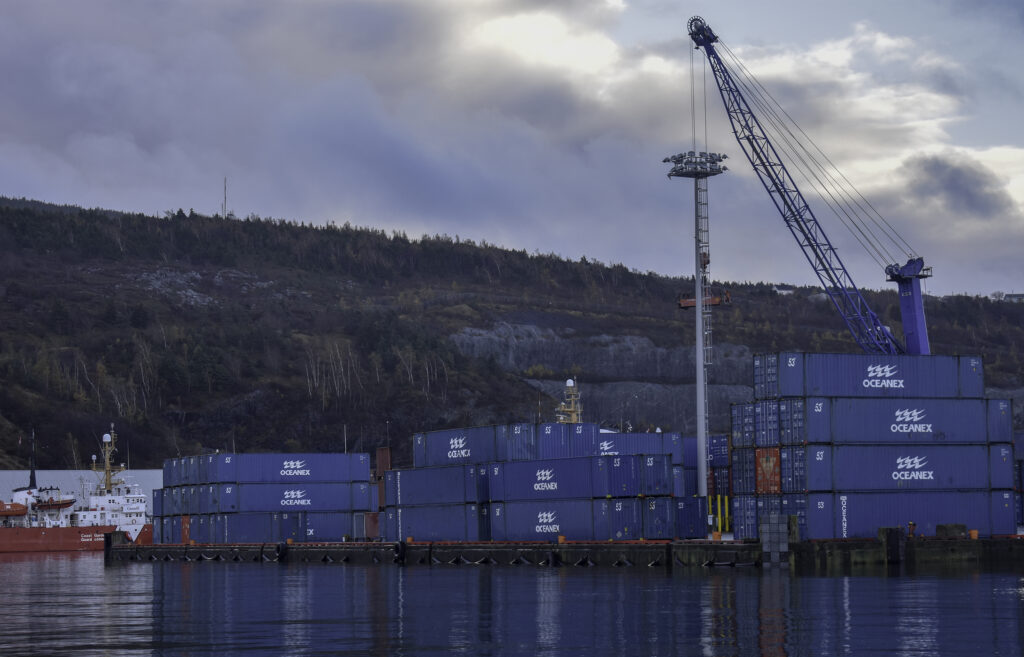Many countries are not allowing their seafarers to come back home due to COVID-19 restrictions.
Nick Travis
Kicker

Seafarers working on many foreign cargo ships have, for all intents and purposes, found themselves stateless during the COVID-19 pandemic.
The International Transport Worker’s Federation estimates the number of cargo seafarers unable to return home right now is between 300,000 – 400,000. The number is increasing monthly as more seafarers work past their contract limits. This statistic troubles Karl Risser, a federation inspector based out of Halifax. While his organization has helped get many stranded workers back to their home countries, he says the process is rigorous.
Under the international Maritime Labour Convention, crew members are only supposed to work a maximum of 11 months before they are to return home. COVID-19 has made applying these rights difficult.
“The problem is you’ve got to work through the embassies, and so it becomes a logistical nightmare,” said Risser. “Then you’ve got to find the right charter flight getting there. And they do exist, but it’s convincing the shipowners to do that extra bit of the logistic works to get them home.”
Many of these countries such as China, the Philippines and Burma have restricted their borders in the same fashion Canada has, but haven’t put in any protections for seafarers such as Canada did. While foreigners working at sea can move through Canada’s ports, they often aren’t allowed to return home leaving them stranded in their last port of call.
“What we did in Canada is we recognized seafarers as a strategic asset,” said Risser. “If we want to accept cargo, if we want to keep our supply chains moving, we have to be able to move seafarers through our country.”
“It’s an old west battle where regulatory standards don’t exist.”
As one can imagine, being stuck at sea for many months or sometimes years is not pleasant. However, many seafarers are afraid to speak up about their living conditions for fear of being blacklisted and not having their contracts renewed by the companies they work for. This is compounded by the fact many labourers are from poor countries where their job opportunities are severely limited.
Mission to Seafarers is a Christian charity that provides things for seafarers such as chaplain services, transport runs during shore leave and medical assistance. Helen Glenn, a mission manager in Halifax, says the mental and physical wellbeing of these labourers grows worse the longer they are trapped on a ship. She says oftentimes officers of these vessels are from an entirely different culture than the workers. This can result in the exploitation.
“You can have Russian officers and Filipino crew members, and sometimes people are not treated the way they should be,” said Glenn from her office in Halifax.
Many shipping companies are registered under countries with lax labour laws such as Panama.This makes it even harder for inspectors like Risser to enforce labour standards for seafarers. Shipping companies are also very powerful, and sometimes their legal teams can make it hard for inspectors to get to the bottom of these alleged abuses. On top of this, following the paper trail to see who is in charge of these companies proves to be difficult, as they are often operated and supplied by many layers of shell companies.
Foreign-flagged ships, says Risser, are the territory of whatever flag is flown from the stern of the ship and follow that nation’s labour laws.
“It is written that you can’t do this and you can’t do that but what happens, in reality, is much different,” said Risser. “In the documents, there are provisions if you can prove these things, but they’re difficult to prove.”
With the increasing automation of labour, many ships are only in port for four to six hours. Risser claims this limited timeframe makes inspections even harder, because oftentimes by the time labour issues are identified and reported, the ships are already off to their next stop.
Glenn believes this problem will only get worse before it gets better. For countries to allow a majority of their seafarers to return home, COVID-19 regulations will have to be relaxed. This likely means a vaccine will need to be widely distributed first. Even then it will take time for these ships to return to their homeport or a port where their crew members are allowed to get a flight home.
“I sense that we’re going to be living with this for probably the next year, especially as it relates to seafarers,” said Glenn.
The way the industry operates, says Risser, means that regulations are hard to enforce.
“It’s an old west battle where regulatory standards don’t exist,” said Risser.

Be the first to comment